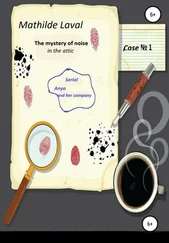Danilo Kiš - The Attic
Здесь есть возможность читать онлайн «Danilo Kiš - The Attic» весь текст электронной книги совершенно бесплатно (целиком полную версию без сокращений). В некоторых случаях можно слушать аудио, скачать через торрент в формате fb2 и присутствует краткое содержание. Год выпуска: 2012, Издательство: Dalkey Archive Press, Жанр: Современная проза, на английском языке. Описание произведения, (предисловие) а так же отзывы посетителей доступны на портале библиотеки ЛибКат.
- Название:The Attic
- Автор:
- Издательство:Dalkey Archive Press
- Жанр:
- Год:2012
- ISBN:нет данных
- Рейтинг книги:4 / 5. Голосов: 1
-
Избранное:Добавить в избранное
- Отзывы:
-
Ваша оценка:
- 80
- 1
- 2
- 3
- 4
- 5
The Attic: краткое содержание, описание и аннотация
Предлагаем к чтению аннотацию, описание, краткое содержание или предисловие (зависит от того, что написал сам автор книги «The Attic»). Если вы не нашли необходимую информацию о книге — напишите в комментариях, мы постараемся отыскать её.
Bildungsroman
The Attic — читать онлайн бесплатно полную книгу (весь текст) целиком
Ниже представлен текст книги, разбитый по страницам. Система сохранения места последней прочитанной страницы, позволяет с удобством читать онлайн бесплатно книгу «The Attic», без необходимости каждый раз заново искать на чём Вы остановились. Поставьте закладку, и сможете в любой момент перейти на страницу, на которой закончили чтение.
Интервал:
Закладка:
Her hands, her caresses?
Her kisses?
Breasts, thighs, hips?
So, this is how she came striding up to me, with this precious baroque burden, with the gait of a tame beast of prey and the wind in her hair.
It was like this:
It was right when I — along with Billy Wiseass — wanted to dedicate myself to philosophy, and we had without much effort just arrived at that famous ninth problem, when he proposed that we skip it, since it was pretty vulgar and of no interest to real philosophers, and instead dedicate ourselves to astronomy and begin that whole business about the stars and planets.
Naturally I agreed.
To this end we sold all our things (that is to say, his coat and mine, and several books that we had wrung out like lemons and thus could have tossed into schoolhouse urinals anyway) and moved into a mansarda , a small attic loft on the outskirts of the city. There we gaped at the stars day after day, or rather night after night, and discovered several galaxies we had never before heard about or seen. We christened one star from the constellation of Orion “Undiscovered Love,” and a second one “Billy Wiseass,” and a third star we christened with my name (let’s let that stay a little secret), and a fourth we named in a straightforward and pretty vulgar manner: Hunger.
In this way we justified our inconsistency and our return to the grand and unworthy question bearing the cabalistic number 9 .
“Allow me,” I said, “to introduce my friend to you: Billy Wiseass.”
“Oh,” she remarked. “You must surely be a philosopher.”
“No,” I said. “He’s an astronomer.”
“Yes,” Billy Wiseass said, “and he’s a—”
“—globetrotter,” I interrupted, aiming for his rawest nerve. (I’ve never liked to bare my true nature in public.)
“Oh,” she replied and her eyes skimmed across a cloud.
“Yes,” I said. “I’ve just returned from the Cape of Good Hope by way of the Côte d’Azur.”
“Lucky you!” she said.
“Lucky us?” I asked.
“Lucky us,” said Billy Wiseass.
The autumn of the year 7464 (according to the Byzantine calendar) was foggy and wet, yet the foliage turned yellow and dried up overnight, so that one morning I was astonished to discover that the branches were as naked as pipes. All of this occurred so unexpectedly!
“So what’s your name, actually?” she asked the next day. “I assume it’s not ‘Cape of Good Hope.’”
“Orphée,” I said. “Orpheus.”
Billy Consummate Liar confirmed it:
“Look here, Magdalena,” he said. “Why shouldn’t you be called Eurydice? He undoubtedly meant to suggest that next. . Right, Orpheus?”
“Of course,” I said. “That goes without saying. If you have no objection.”
“Oh,” she said. “How strange you are!”
Then, a surprise attack:
“So where’s your guitar, Orpheus?”
“In the attic,” I said.
“Which attic?” she asked.
“We live there because of its proximity to the stars. You understand. We will rename ‘Hunger’. . ‘Eurydice.’ Do you like that idea?”
“I don’t get it,” she said.
“In order for one star at least to bear your name.”
“My name isn’t Magdalena.”
“Who said anything about Magdalena? I said ‘Eurydice.’”
“Oh,” she said. “I don’t care. But I would like to see this star.”
“Certainly,” I said. “We will select a star that is worthy of your name.”
ATTIC (I)
The next day I led her up the dark wooden stairs to the attic. I had already chased Billy Wiseass out, and I explained away his absence by expressing my amazement that he wasn’t around.
“That’s not nice of him,” I said.
“It’s not,” she agreed.
“Maybe he left to go to the observatory,” I said in his defense.
“But where is your guitar?” she asked, casting a glance around the room.
The room resembled the hold of one of those small sailboats pitching back and forth on the high seas, lost in the dark of night. On the walls the dampness had sketched out wondrous designs of the flora and fauna that bloom and thrive only in dreams. On the ceiling was a depiction of the birth of the world from the embrace of dewy sleep and tentative wakefulness, while in the four corners stood symbolic illustrations of the four continents: the African summer, the Asian spring, the snows of America, European autumn.
Mastodons and reptiles grazed on the walls, and hummingbirds plucked thick mucus from the eyelashes of a woolly mammoth. Flocks of wild doves (the last examples of which were to be found in this attic) and cranes and swallows covered the walls, forming an enormous wedge in the shape of the numeral 1 , thereby providing an illustration of biblical brotherhood and the mythical marvel of friendship: And the swallow will build its nest in the ear of the mastodon, and the hummingbird will comb the leopard’s mane with its silvery beak, and the woodpecker will clean the teeth of the crocodiles of Niagara and the Holy Nile . (The Gospel according to Billy Wiseass, translated into Mansardic from the Galactic and rendered in verse by ——, known as Orphée or Orpheus.)
With our fingernails we had copied out Latin and Greek maxims all over the wall (wherever it didn’t detract from the pictures drawn by the hand of dampness). We abided by them like the Ten Commandments and, in times of intellectual crisis and despair, we recited them like prayers of purification. They were guideposts to truth, lux in tenebris , as Billy Wiseass said. Who else would have hit upon the notion that people needed to carve maxims into the wall ad unguem , “by means of their very fingernails, until the blood spurts.”
Here are some bits of wisdom from the Temple of the Attic:
Jos arta, caci se prostituat!
*
Quod non est in actis (in artis!) non est in mundo.
*
Plenus venter non studet libenter.
*
Nulla dies sine linea.
*
Abyssus abyssum invocat.
*
Nec vivere carmina possunt.
*
Quae scribuntur aquae potoribus .
*
Ho bios brakhus, hê de tekhnê macra .
*
Castigat ridendo mores.
*
Amo, ergo sum.
*
Credo quia absurdum.
*
Tempora si fuerint nubila, solus eris.
*
Felix qui potuit rerum cognoscere causas.
*
Gnohti saeuton.
*
Habent sua fata libelli.
*
Os homini sublime dedit.
*
Pectus est quod disertos facit.
*
Albo lapillo notare diem.
*
Mens agitat molem. .
Do you recall, Billy Wiseass, the cry:
— O ubi campi!
And that wise teaching we did not wish to follow:
— Primum vivere, deinde philosophari!
And this example of arrogance:
— Hic tandem stetimus nobis ubi defuit orbis.
(Here we finally stand, a place that has fled our earth.)
Oh, that attic!
On the floor there was grimy straw that had been strewn about and trampled; it was teeming with roaches, so that in the middle of the gray day (the window was plugged up with rags and faded old newspapers) you could hear the straw rustling beneath their tiny feet. We had placed our books on the bed and wrapped them in diapers of cellophane, but even there the rats found them and so we had to keep the most important copies under a bell jar weighted down with a rock. Billy Wiseass had swiped the glass cover from The Three Elephants for this purpose; he had simply clapped it down over his head and announced to all the folks there: “With this I shall travel to the stars.” Everybody (including the waiter) laughed at this joke, so witty, and given his age, so ambitious. Under this bell jar we stored the following books: Spinoza’s Ethics in Latin, the Holy Scriptures in Hebrew, Don Quixote , the Communist Manifesto by Marx and Engels, Breton’s Second Manifesto , a Handbook of Diet Foods, Pensées d’un biologiste by Jean Rostand, Yoga for Everyone , Jeans’s book on the stars, Rimbaud’s A Season in Hell , Stendhal’s On Love , Weininger’s Sex and Character , reproductions of Van Gogh prints in a pocket edition, and an international train timetable.
Читать дальшеИнтервал:
Закладка:
Похожие книги на «The Attic»
Представляем Вашему вниманию похожие книги на «The Attic» списком для выбора. Мы отобрали схожую по названию и смыслу литературу в надежде предоставить читателям больше вариантов отыскать новые, интересные, ещё непрочитанные произведения.
Обсуждение, отзывы о книге «The Attic» и просто собственные мнения читателей. Оставьте ваши комментарии, напишите, что Вы думаете о произведении, его смысле или главных героях. Укажите что конкретно понравилось, а что нет, и почему Вы так считаете.












